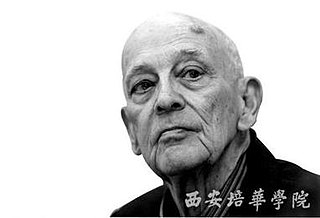A Quote by Orson Pratt
At various times during the last four thousand years God has asserted his rights and endeavoured to establish his own authority, his own laws, and his own government among the children of men
Related Quotes
The only proper, moral purpose of a government is to protect man's rights, which means: to protect him from physical violence - to protect his right to his own life, to his own liberty, to his own property and to the pursuit of his own happiness. Without property rights, no other rights are possible.
Everyone has an equal and absolute right to sovereignty over his own body, his own property, and his own life, and to pursue his own happiness in any way that he chooses. No one has the authority to grant rights to anyone else, because human beings already possess all natural rights at birth. These rights include both personal and economic freedoms, and the only way they can be lost is if someone takes them away by force. The only right that an individual does not naturally possess is the right to violate someone else's liberty.
The government of the enlightened king? His achievements blanket the world but appear not to be his own doing. His transforming influence touches the ten thousand things but the people do not depend on him. With him there is no promotion or praise - he lets everything find its own enjoyment. He takes his stand on what cannot be fathomed and wanders where there is nothing at all.
As the base rhetorician uses language to increase his own power, to produce converts to his own cause, and to create loyal followers of his own person - so the noble rhetorician uses language to wean men away from their inclination to depend on authority, to encourage them to think and speak clearly, and to teach them to be their own masters.
With only one life to live we can't afford to live it only for itself. Somehow we must each for himself, find the way in which we can make our individual lives fit into the pattern of all the lives which surround it. We must establish our own relationships to the whole. And each must do it in his own way, using his own talents, relying on his own integrity and strength, climbing his own road to his own summit.
To live his life in his own way, to call his house his castle, to enjoy the fruits of his own labour, to educate his children as his conscience directs, to save for their prosperity after his death -- these are wishes deeply ingrained in civilised man. Their realization is almost as necessary to our virtues as to our happiness. From their total frustration disastrous results both moral and psychological might follow.
The skeptic says that the believer has lost his own mind under God. On the contrary, it is the people who follow God who are most like his children, who willingly and consciously walk in his will; but those who oppose him oppose him vainly and at their own expense, and, figuratively, seem to be more like his tools. They don't diminish his glory, but instead he still manages to use them in ways of unconsciously carrying out his will.
As the patriots of seventy-six did to the support of the Declaration of Independence, so to the support of the Constitution and Laws, let every American pledge his life, his property, and his sacred honor;-let every man remember that to violate the law, is to trample on the blood of his father, and to tear the character of his own, and his children's liberty.
In His discourses, His miracles, His parables, His sufferings, His resurrection, He gradually raises the pedestal of His humanity before the world, but under a cover, until the shaft reaches from the grave to the heavens, whenHe lifts the curtain, and displays the figure of a man on a throne, for the worship of the universe; and clothing His church with His own power, He authorizes it to baptize and to preach remission of sins in His own name.




































